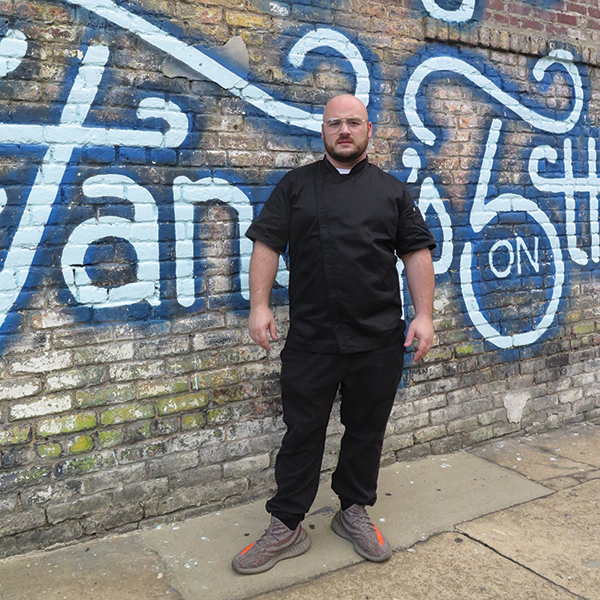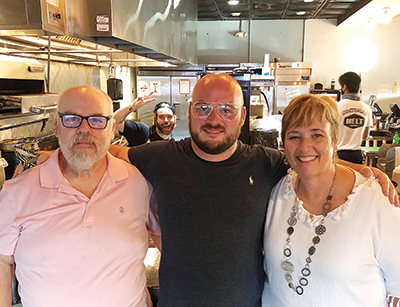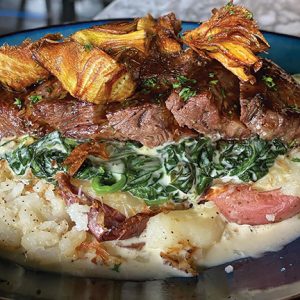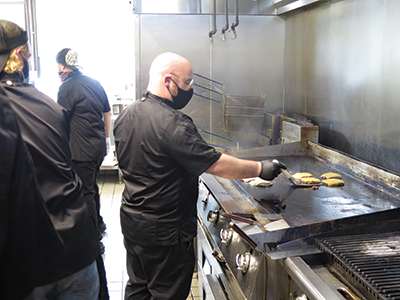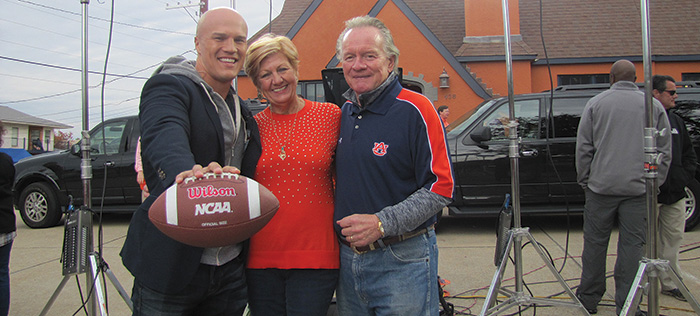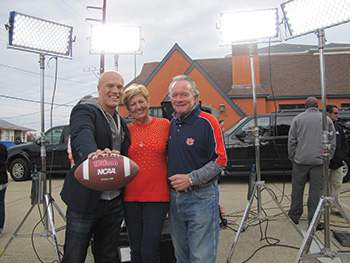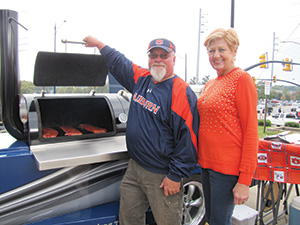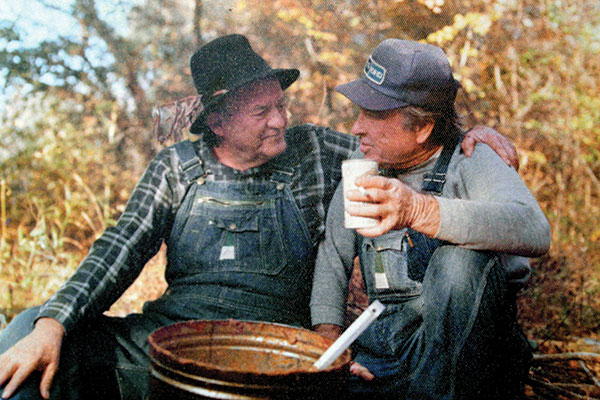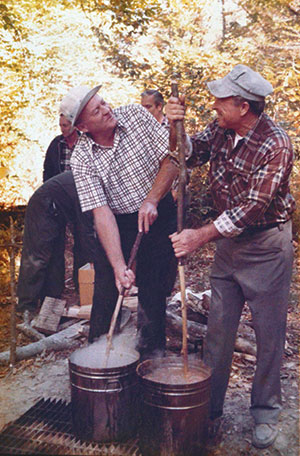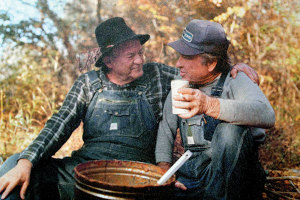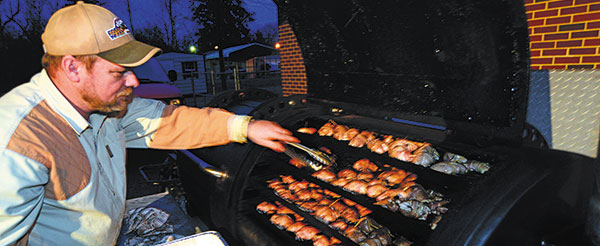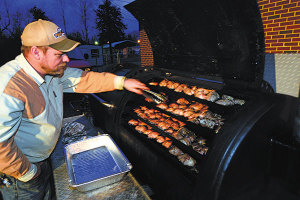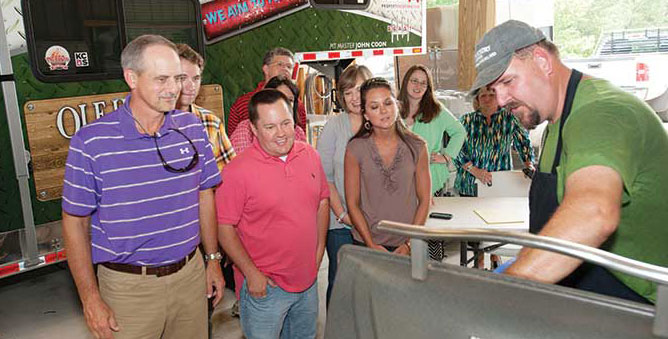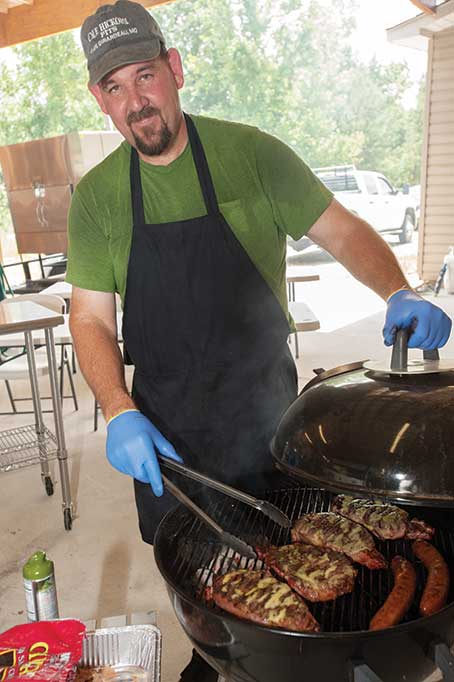A Greek bearing delicious gifts, a star-studded past
Story by Scottie Vickery
Submitted photos
When it comes to cooking, Polly Warren has trained with the best. As a young girl growing up in Greece, she learned the intricacies of meals and pastries from her mother and grandmother. After marrying an American and moving to Georgia as a young bride, she mastered Southern dishes in her mother-in-law’s kitchen.
The result is something she calls American Greek cooking – a delicious blend of both countries born from two families full of tradition and love. “I love the cooking,” she said, her Greek accent still heavy. “I love to learn and do new things. If I see something I like, I make it, add to it, and make the recipe my own.”
As a result, she’s bridged the divide between two cultures by introducing her favorite Greek dishes to her American family and friends and taking some Southern favorites home to her family. “I made them chili,” she said, laughing at the memory of the first American dish she shared with her loved ones in Greece. “They loved it. They thought it was great.”
A popular caterer in St. Clair County, Polly works out of the kitchen of the Pell City KFC, which her family has owned for nearly five decades. In addition to weekly meetings of the Rotary Club of Pell City, she caters everything from tailgate parties and luncheons to teas, rehearsal dinners and weddings. “Whatever anybody wants, I can cook it,” she said.
Growing up Greek
Born Polyltime Stavridis, the daughter of Dimitri and Kostantina, Polly grew up in Athens, Greece, with her brother, Costas, and her sister, Vaso. Whenever she thinks of her childhood, the first thing that comes to mind is the family kitchen. “I can still close my eyes and see myself there,” said Polly, now 72. “We’d always be in the kitchen. Always the girls served the men.” The main meal was served at 2 p.m., and after an afternoon siesta, the men would return to work. “Then they would come back, and we would eat leftovers,” she said.
Even as young girls, Polly and Vaso worked alongside their mother and grandmother, who lived with them. “We started when we were young, 5 or 6,” she said. ‘“They always gave us a little dough so we could participate. We would clean the potatoes, help with the dough, make cookies. When we were 10, 11 or 12, we would start participating completely.”
Family favorites included stifado, a Greek beef stew; spanakopita, a spinach pie; bifteki, which Polly describes as a stuffed hamburger; and keftedes, or Greek meatballs. “My mother used to make a big pan and leave it on the stove, and we’d eat it like popcorn,” she said.
There were plenty of pastries, too. Melomakarona, or honey cookies, were a staple, as well as tea cakes and baklava. Polly remembers her grandmother rolling out big sheets of homemade phyllo dough that was used for pastries and pie crusts. “Back in those days we made it homemade,” she said. “It took two people.”
Cooking for a crowd proved to be a challenge. “Back then, we had a little bitty oven, and our oven couldn’t bake all those cookies and big dishes like stuffed peppers and tomatoes,” Warren said. They took their dishes and pastries to a nearby baker, who cooked it for them in his industrial oven. “You tell him you want it ready for the family at 2, you give him $1 or $2, you pick your food up and carry it home,” she said.
A good student, Warren skipped the sixth-grade and graduated from high school at 16. “I started modeling and playing parts in movies,” she said, adding that her uncle was a producer. “Somebody didn’t show up one day, and he calls me and said, ‘Polly, do you want to do this?’ It was a commercial for shoes.”
After that, she had a “little part in a movie here, a little part there,” including a role as a party guest in the 1965 Italian movie, The Three Faces of a Woman. The movie starred Princess Soraya Esfandiary Bakhtiari, the ex-wife of an Iranian shah, and Richard Harris, who later played Albus Dumbledore in the Harry Potter and the Sorcerer’s Stone and Harry Potter and the Chamber of Secrets.
Young Polly’s acting and modeling career didn’t last long because she soon met her future husband – Wayne Warren, an American serviceman from Georgia who was stationed in Greece. “I have good memories of it, and I did it until I met Mr. Warren,” she said. “Mr. Warren, he says ‘no.’ He didn’t like all those guys hanging around.”
The two met when Polly’s friend, who was engaged to an American buddy of Wayne’s, invited her to a party. She was hesitant to go because she didn’t know what to tell her family. “Back in those days, you didn’t go off to a party,” she said. “I did a little white lying and said we were going to the movies.”
The two really did go to the movies a few weeks later, after Wayne had gotten permission from Polly’s father. “A commercial came on the big screen, and there I am big as life,” she said with a laugh. “I’m hiding under the seat, and he couldn’t believe it. It was a commercial for glassware for a wedding.”
After the two married, Polly left her beloved Greece in 1967 to move to the U.S. with Wayne. After a quick stint in Texas, they headed to Columbus, Ga., Wayne’s hometown. He was still in the Air Force, so Polly lived with his mother, Irene Warren, in her beautiful old house with a big wraparound porch. “It was very, very nice,” Polly said. “My mother-in-law, she loved me to death.”
Southern influences
Although she missed her family, cooking with Irene helped cure some of the homesickness. “We cooked together in this big kitchen, and you felt like it was home,” Polly said. “I learned how to do squash casserole, make creamed corn and snap peas.”
The dishes were different from anything she’d had before, but Polly appreciated good food when she tasted it. “Mac and cheese, I never ate it in my life, but once I tasted it, it was good. I learned to eat pork chops, and I learned to eat ribs and turnip greens. I loved it.”
As a new bride, she learned to fix some of her husband’s favorites, which quickly became hers as well. “I love a good steak and baked potato,” she said. “And vegetables with cornbread. I could sit and eat the whole skillet.”
Another Southern staple, fried chicken, soon became a big part of her life. After Wayne retired from the Air Force in 1970, they moved to Selma, where he worked with a dear friend who owned KFC franchises. He decided he wanted to open one himself. Although “we only had baked chicken in Greece, we never fried it,” Polly was on board.
Wayne started scouting locations, and while driving through central Alabama one day, he happened to stop at a gas station in St. Clair County. “An 18-wheeler driver told him to look at Pell City,” she said. “That’s what he did, and that’s where we are.”
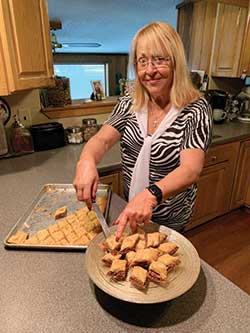
While raising their three sons – Michael, Jimmy and David – the Warrens spent lots of time at various ballfields and soon became fixtures in the community. Polly got her catering start while working in the concession stands, where she cooked plenty of hot dogs and hamburgers. That led to dishes for athletic banquets and other events, and things took off from there.
“Before you know it, they asked, ‘Do you mind doing a tea,’ so you do a tea. Then they said do, ‘Do you mind doing a wedding,’ so you do a wedding. I started with 100 people, and I have been up to 600. That’s how it all got started,” she said.
Although Wayne passed away 10 years ago, Polly still loves cooking for her family and especially enjoys time in the kitchen with her four grandchildren. She’s happy to share recipes, although at times that proves a little difficult. “I never measure anything,” she said. “I put a little bit of this, a little bit of that. So, when they ask, I have to figure it out and write it.”
Alabama has been home for most of Polly’s life, but she still gets homesick for Greece on occasion. Yearly trips to Athens help, and she loves to get back in the kitchen with her mother, now 90, and her sister while she’s there. She makes sure to bring back her favorite fresh spices. “It grows wild over there,” she said. “You see rosemary, you see basil. I bring all that back. The American spices, they do not taste the same.”
Whether it’s the spices or the love she puts in each dish, Polly’s cooking is always a hit. “It’s good therapy,” she said. “I get in the kitchen and get busy cooking, and I never leave. I make a lot, and I give it away to neighbors and family and friends. I love it when people eat it and say how good it is. No one has complained yet.”












